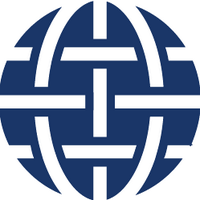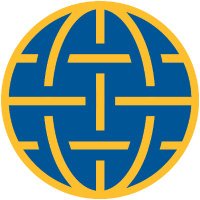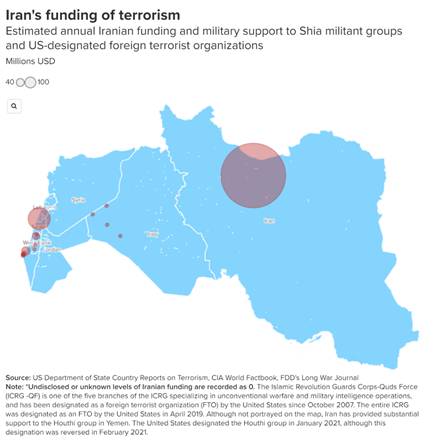
Kimberly Donovan
@kdonovan_ac
Director @AtlanticCouncil Economic Statecraft Initiative @ACGeoEcon. Former @USTreasury, FinCEN, NSC.
Views expressed here represent my personal opinion.
ID: 1640777807809638402
https://www.atlanticcouncil.org/expert/kimberly-donovan/ 28-03-2023 18:09:00
36 Tweet
201 Takipçi
136 Takip Edilen

THURSDAY 5/18 Join us @ 9:30am as high-level officials from Treasury Department, U.S. Department of Justice & U.S. Commerce Dept. discuss how 🇺🇸+allies are going after Russian sanctions evasion ⤵️ atlanticcouncil.org/event/in-hot-p…



📆 June 12 | 🕟 4:30 pm ET Join Arsht Latin America Center & Caribbean Initiative for a conversation with U.S. Senator Bill Cassidy, M.D., Michael Bennet, Millicom, @Comexcr, Ministerio Economía, Baker McKenzie, Flexport, Kimberly Donovan and others on supply chain relocation to the Americas. Register now. ⬇️ atlanticcouncil.org/event/closer-t…

"Despite Xi and Putin’s public proclamation of a ‘no limits’ partnership, China and Russia’s economic ties are limited by Beijing’s strategic interests." Read the latest by our Maia Nikoladze, Phillip Meng, +Jessie Yin now ⬇️ atlanticcouncil.org/blogs/econogra…

Secretary Blinken asked Beijing to be vigilant about Chinese companies providing technology to Russia & confirmed that 🇨🇳 has not provided lethal aid to 🇷🇺. How is China mitigating the effects of sanctions on Russia? Read our Atlantic Council research 🧵 atlanticcouncil.org/blogs/econogra…


We are hosting the Transatlantic Forum on GeoEconomics with Atlantik-Brücke in Berlin on 9/22. Christian Lindner, Robert Habeck, and Sigrid Kaag will join us as keynote speakers as we discuss the future of economic statecraft. Register to attend here ➡️ bit.ly/3TeGQH7



TUNE IN for the #TransatlanticForum on GeoEconomics, cohosted with Atlantik-Brücke. At this year’s conference, we will outline a way forward on the use of tools of economic statecraft and launch new research. x.com/i/broadcasts/1…

“The scale and pace at which we’ve imposed economic pressure on Russia was unprecedented,” says Foreign, Commonwealth & Development Office’s David Reed. This has been due to: 🔵 Intense coordination 🔵 Equal focus on implementation and enforcement 🔵 Communication about sanctions ➡️ bit.ly/466k6hV

Frozen Russian assets could be invested profitably, with the goal of creating an annuity for Ukraine of at least two billion dollars a year, write Atlantic Council GeoEconomics Center’s Kimberly Donovan and Charles Lichfield. Read more. ⬇️ atlanticcouncil.org/blogs/new-atla…

The West is unlikely to seize Russia’s reserves any time soon due to legal hurdles. This money can be invested profitably, with the goal to create an annuity for Ukraine of at least 2 billion USD a year, write Kimberly Donovan and Charles Lichfield. Read more ⬇️ bit.ly/3t8OJVs

"The use of FinCEN’s Section 311 authority to target a class of transactions is unprecedented." Our ESI Director Kimberly Donovan comments on the US crackdown on the types of crypto transactions that may fund Hamas. Read more live analysis here: bit.ly/3FtgTx5


United Nations FATF UN Security Council To learn more, check out the new Global Sanctions Dashboard edition on Iran by Kimberly Donovan, Maia Nikoladze, Ryan Murphy, and Yulia 🔽 bit.ly/3MgBfh6

🔴 NEW | In the latest Atlantic Council GeoEconomics Center Global Sanctions Dashboard, Kimberly Donovan, Maia Nikoladze, Ryan Murphy, and Yulia Bychkovska connect the dots on how Iran evades sanctions and finances terrorist organizations like Hamas. Explore the key takeaways: 🧵➡️ bit.ly/3MgBfh6


“Research from Atlantic Council has noted that CBDCs can be designed in a way that offer cash-like privacy.” Maxine Waters cites our Missing Key report when discussing privacy protection options in CBDC design. atlanticcouncil.org/in-depth-resea…

The The Wall Street Journal cites Director Kimberly Donovan: "Oil revenue from China is propping up the Iranian and Russian economies and is undermining Western sanctions" to form an "axis of evasion." Read more from Ian Talley + Rosie Ettenheim on this "shadow economy" ➡️ wsj.com/world/how-amer…
